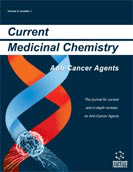Abstract
DNA double strand breaks are the pivotal cellular damage induced by ionizing radiation. A plethora of molecular and cellular processes are activated as part of the cellular stress response that result in cell cycle arrest and induction of the DNA-repair machinery to restore the damage of DNA or to activate a cell death program. However ionizing radiation also initiates signal transduction cascades that are generated at cellular sites distant from and independent of DNA-damage. These signaling processes are similar to hormone activated growth factor receptor controlled signal transduction cascades and represent interesting targets for anticancer treatment modalities combining ionizing radiation with molecular defined pharmacological compounds. Activation of these signal transduction cascades upon irradiation or upregulation of growth factor mediated pathways due to oncogene-transformation often contribute to an acquired or inherent treatment resistance in malignant cells. Therefore pharmacological compounds inhibiting specific key-entities of these signal transduction cascades potentially sensitize for radiation induced cell death. Here we describe current preclinical concepts of combined treatment strategies with locoregional-applied ionizing radiation and molecular defined signal transduction inhibitors to overcome a high treatment threshold in tumor cells.
 1
1

















